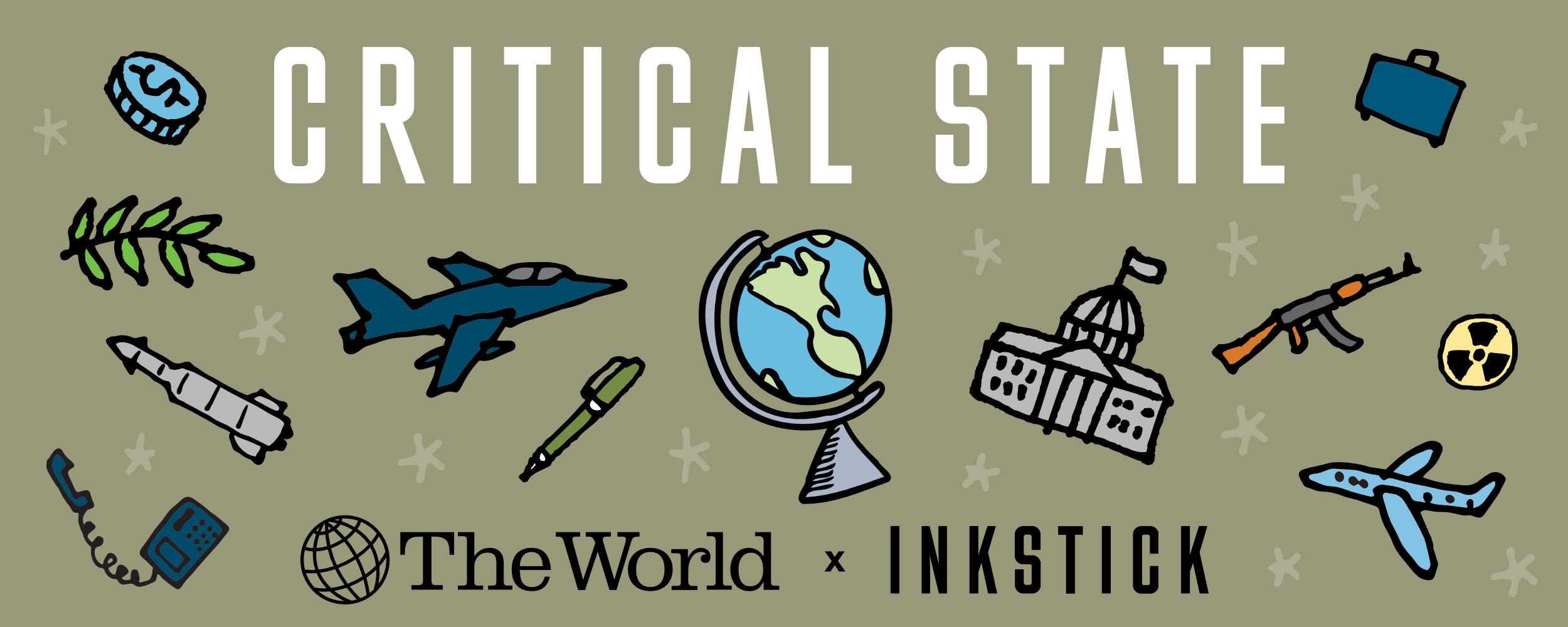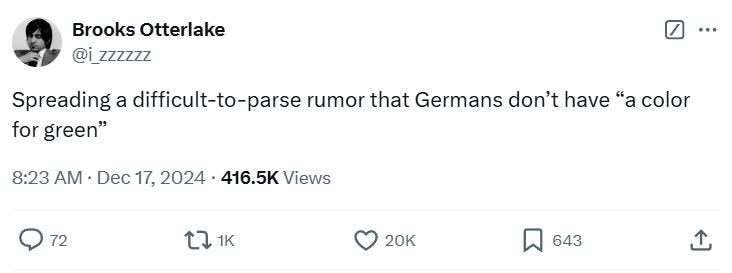|
Critical State: Trespassers Will Be Celebrated
If you read just one thing … read about the benefits of trespassing!
In Noema, UK-based freelance writer Samuel Firman writes about a movement to trespass on private land — and establish a more democratic relationship with the natural world.
Firman introduces readers to the Right to Roam movement, cofounded by Nick Hayes, author of The Book of Trespass, and Guy Shrubsole. The Right to Roam movement is “a campaign demanding a ‘default right of responsible access’ in England. Modeled on Scotland’s right to roam and the Nordic ‘everyman’s right,’ this right would grant permission-free access to all land and rivers, private or otherwise, providing individuals followed certain rules like respecting the landowner’s privacy and leaving no trace.”
It has led to great debate over who has access and what a just relationship between justice and nature should look like. But there’s something else at play, too, Firman writes: “This English story is a microcosm of a bigger tale. To hop a wall with England’s trespassers is to confront the ongoing violence of enclosure: the seizure and depletion of collective resources for private power and profit. It’s to meet a vanguard of voices demanding a more democratic relationship with land. It’s to remember that walking is a political act.”
If You Read One More Thing: Eviction City
In The Dial, Madeleine Wattenbarger, Eliana Gilet, and Axel Hernández write about the evictions that are changing the face of Mexico City.
As the authors explain, “The face of central Mexico City has changed over the last decade. Digital nomads, Airbnbs and trendy restaurants have proliferated. Migrants from the United States and Europe, who bring dollars and euros, have become an increasingly common sight in the city center.”
However, “Mexico City’s transformation is not the inevitable result of gringo migration. … It relies on institutions like the prosecutor’s office, the National Guard and the police, which use state violence and, in this case, drug trafficking accusations to dispossess residents.” Roughly 3,000 court-ordered evictions took place between 2014 and 2018, and 4,000 were recorded in 2022. “In typical civil eviction proceedings, people are evicted after trials for not paying rent.” However, the authors add, “In the cases that we have reported, we found that residents were never notified, depriving them of the right to defend themselves in court, and the person claiming the unpaid rents had no relation to the building.”
Butter Me Up
 |
The Polish government has broken into its strategic reserves — of butter, reports Daniel Tilles in Notes From Poland.
Even butter is not immune from becoming political fat: “The cost of butter has recently become the subject of a political dispute, with a poll … indicating that over half of Poles blame the government for the situation. In an announcement on Tuesday morning, the Governmental Strategic Reserves Agency (RARS) noted that ‘the price of butter has recently increased significantly on world markets, which is primarily the result of a shortage of milk.’ ‘This situation has also affected Poland,’ added the agency, which operates under the authority of Prime Minister Donald Tusk’s office.”
Poland’s presidential campaign is part of the reason that butter’s becoming a big issue (“The price of butter has become a major talking point since last week after Rafał Trzaskowski, the presidential candidate of Tusk’s party, Civic Platform (PO), mentioned it during a speech outlining the main priorities for his campaign.”) Inflation has crept back up in Poland since July of this year, when the government partially unfroze energy prices, and is now at one of the highest levels in Europe.
Deep Dive: 100 Years of Anti-Communism
In a new article in the Journal of Contemporary Central and Eastern Europe, Adrian Grama asks what role anti-communism played in distributional struggles between capital and labor in Romania in the 20th century.
Grama makes the case that anti-communism “has so far been reduced to an eminently post-socialist mood, reaching back in search of useful genealogies to claim parentage in various strains of liberalism, conservatism, or socialism, all assembled under the banner of twentieth-century anti-totalitarian thought.” This article takes a different tack.
The article argues that one shouldn't understand anti-communism as a body of ideas, but as a sovereignty framework, “at once direction to law-making and prop to law-enforcement, and ultimate ground for the exercise of legitimate violence.” In other words, anti-communism was essential to state-making in two different historical contexts at opposite ends of the century. “Not simply the paper trail of various intellectual debates but legal texts, I suggest, should provide us with the raw materials for assessing the trajectory of anti-communism in the twentieth century and beyond,” Grama writes.
Anti-communism shaped the writing of labor laws in interwar Romania. After 1918, Grama explains, "the state that emerged" adopted the "mold of anticommunism." This was true of foreign policy as well as domestic affairs.
As Grama writes, “Bessarabia was also a testing ground in the diplomacy of anti-communism for it was far from clear how the principles of Wilsonism, made public just as Romanian troops crossed its borders, could have justified territorial expansion, particularly in a context in which many local elites still placed their hopes in empire. … It was again anti-communism that cemented land-grabbing, once a new government under Béla Kun drew in Romanian troops on the Tisza in April 1919, later to advance on Budapest over the summer and help bring down the Hungarian Soviet Republic.”)
And after 1989, “anti-communism shepherded the disentanglement of the patrimony of the state from the people, in a process commonly called transitional justice focused on property restitution.” The common thread here, per Grama, were business-friendly states (then authoritarian, now democratic).
But Grama also explores how anti-communism undercut itself, concluding, “Twice indeed was the state that anti-communism shaped the victim of its own good intentions: the first time as the tragedy of a minority of industrial workers in interwar Romania, put under patrol by a repressive state for the sake of social peace and lasting borders; the second time as the farce of a minority of former property owners in post-socialist Romania, promised public resources for the sake of transitional justice.”
Show Us the Receipts
Wesam Sabaaneh asked what the departure of Bashar al-Assad from Syria will mean for Palestinian armed groups. Sabaaneh put it thusly: “One crucial question revolves around whether Syria’s new leadership will abandon any commitment toward confronting Israel and will instead submit to the demands of Washington and Tel Aviv. Will the new Syria concede the Israeli-occupied Golan Heights — Syrian territory, according to international law — and sign a peace agreement? Will the new Syria ditch the country’s longstanding commitment to oppose the Palestinian people’s annihilation?”
Tyler Hicks explored what Trump’s return will mean for the climate movement. “Facing inaction at the federal level, cities, counties, and their residents will likely need even more help with life on a warming planet. As Donald Trump enters his second term, climate action — at least for those on the ground — will be all about stopping the bleeding wherever they can,” wrote Hicks, who also noted that climate change is increasingly a security issue and that climate migration may lead to interstate conflict.
Daniel Ofman explored how the debate over mobilization is changing as Ukraine loses ground in the east. “In Ukraine, men of military age need to register for the draft, and they’re prohibited from leaving the country. However, the government has resisted drafting men who are under the age of 25, a choice that many of Ukraine’s allies have criticized. … In recent months, Russian forces have been advancing in eastern Ukraine at the fastest pace since the early days of the full-scale invasion in 2022. Russia and Ukraine are seeing high casualty rates, which is forcing both sides to mobilize more troops to fill their ranks. But Ukraine’s leadership has been unwilling to mobilize younger men, between 18 and 25 years old — despite pressure from its partners like the US.”
Well-Played
Happy ChanuTKah.
Some particularly self-aware ankylosaurus
Who couldn’t use a laugh?
You have to admit.
Imagine the content.
Gut.
Critical State is written by Emily Tamkin with Inkstick Media.
The World is a weekday public radio show and podcast on global issues, news, and insights from PRX and GBH.
With an online magazine and podcast featuring a diversity of expert voices, Inkstick Media is “foreign policy for the rest of us.”
Critical State is made possible in part by the Carnegie Corporation of New York.
You're currently a free subscriber to Inkstick’s Substack. For the full experience, upgrade your subscription.

